Spot the Scam: Valentine’s Day, Walmart, Dyson, MetaMask, LinkedIn, USPS, Samsung, and AT&T
This week we’ve found a large number of phishing scams that you need to watch out for, including ones relating to Valentine’s Day, Walmart, Dyson, MetaMask, LinkedIn, USPS, Samsung, and AT&T. Would you have been able to spot all the scams?
Phishing scams are one of the scammers’ favorite weapons! Conventionally, while impersonating famous brands, they send out fake text messages and emails containing phishing links with the aim of enticing you into opening them with promises of “prizes” or “discounts”.
Most commonly, these links lead to online survey pages that state you can claim a gift by filling out an online questionnaire. After that, you are prompted to enter credit card numbers before your “gift” can be delivered. In other instances, the links take you to fake log-in pages that seem to belong to various brands. These pages require you to submit log-in credentials to check a package’s delivery status, change account settings, or whatever other tasks the scammers have asked you to complete.
Their ultimate goal is to steal your personal information — they’ll record everything you enter on these fake pages and use it to commit cybercrimes: e.g., hack into your bank account or steal your identity. Don’t let them! Read on to check out the hottest scams of the week!
1. Valentine’s Day Scam (The Million Rose)
“Express your love with an unforgettable Valentine’s Day gift!” Have you bought something special for your valentine this year? Well, while you were busy picking out the perfect gift online, scammers were busy cheating lots of people out of money using a very clever email Valentine’s Day scam:

Impersonating The Million Roses, scammers prompt you to click on a button in a seemingly legitimate email that leads you to a fake shopping site:

On the fake page, you could end up exposing your personal credentials like your credit card details. Be careful!
2. Walmart / Dyson Lottery Scam
Fancy a free Dyson vacuum cleaner? Think twice before clicking on anything! Scammers often steal Walmart’s brand name and create fake reward campaigns. This week we found the scammers claiming to be giving out free Dyson v11 vacuum cleaners via email:

The link in the email will direct you to a fake online survey page that says before you can receive the gift you need to fill out the survey. After that, you need to enter a delivery address and credit card details to claim the gift. However, there are no gifts to be had here — only tricks!
Browse the web safely with Trend Micro ScamCheck (it’s free!)
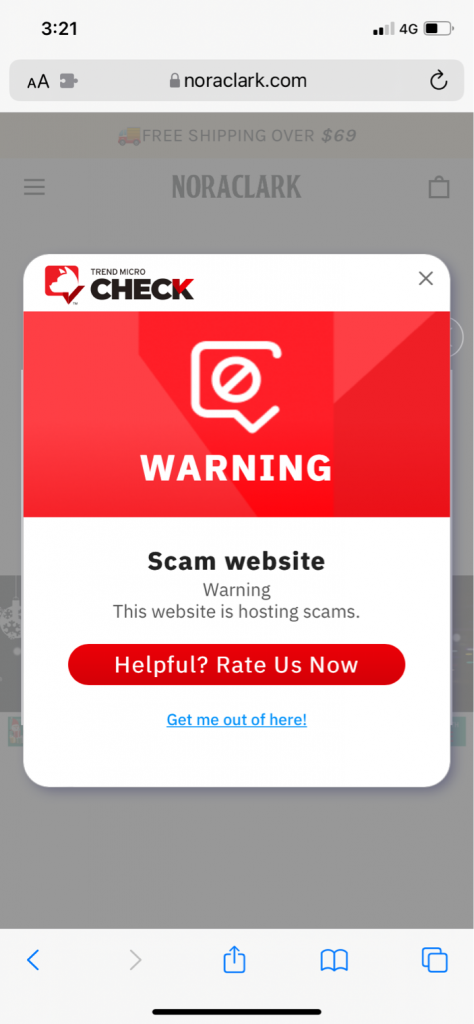
ScamCheck is an all-in-one browser extension for detecting scams, phishing attacks, malware, and dangerous links – and it’s FREE!
After you’ve pinned ScamCheck, it will block dangerous sites automatically! It’s available on Safari, Google Chrome, and Microsoft Edge.
Check out this page for more information on ScamCheck.
3. MetaMask Security Alert Scam
Fake MetaMask emails have been widely circulating as public interest in NFTs keeps rising. This week we found scammers falsely claiming that your MetaMask wallet is going to be suspended because of some security issue:
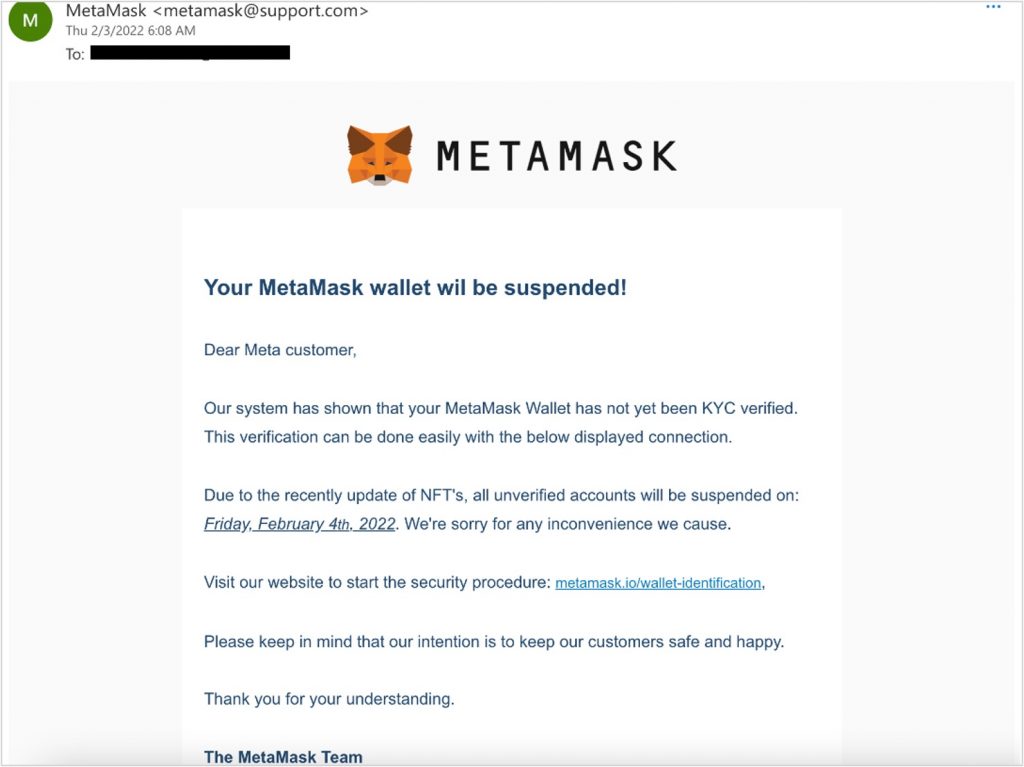
They then instruct you to visit the attached link to verify your account. Don’t do as they say! The link leads to a fake MetaMask website (it’s really hard to tell it apart from the legitimate one):
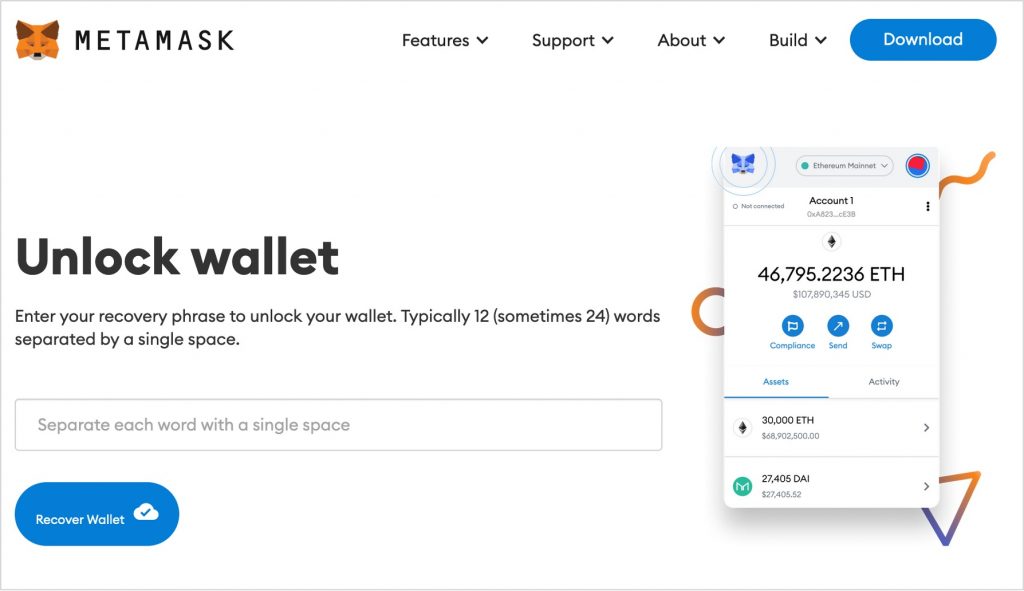
If you submit credentials such as your recovery phrase, scammers can hack into your MetaMask wallet and transfer every “bit” away. Watch out!
4. LinkedIn Phishing Email Scam
Looking for jobs online? Watch out for fake LinkedIn emails! We reported on fake LinkedIn email notifications back in October 2021. However, now there are two new versions:
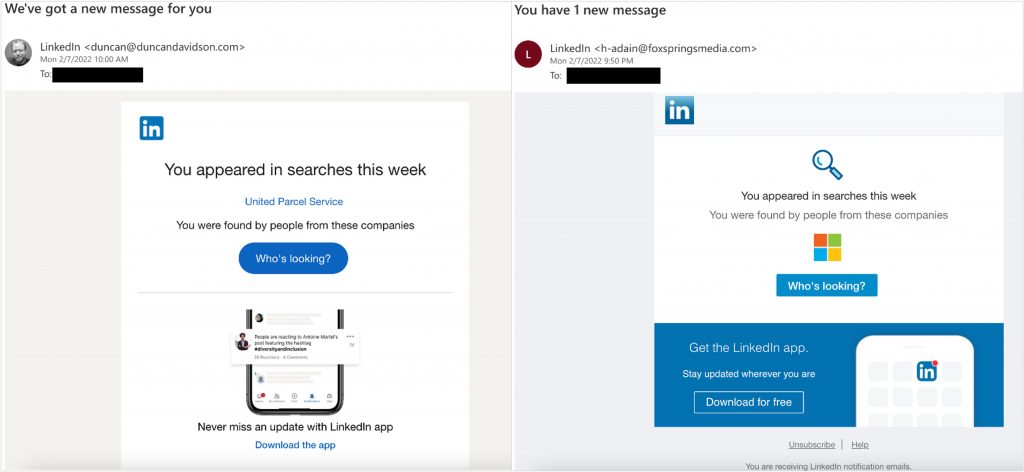
If you take a close look, you will see that the senders’ emails addresses are NOT legitimate LinkedIn ones. Don’t fall for them!
5. USPS / Samsung Lottery Scam
Expecting any packages to be delivered? Watch out for fake USPS delivery emails! Scammers have been posing as USPS and falsely claiming that they are holding giveaway campaigns, promising people free Samsung S21 mobile phones as gifts.
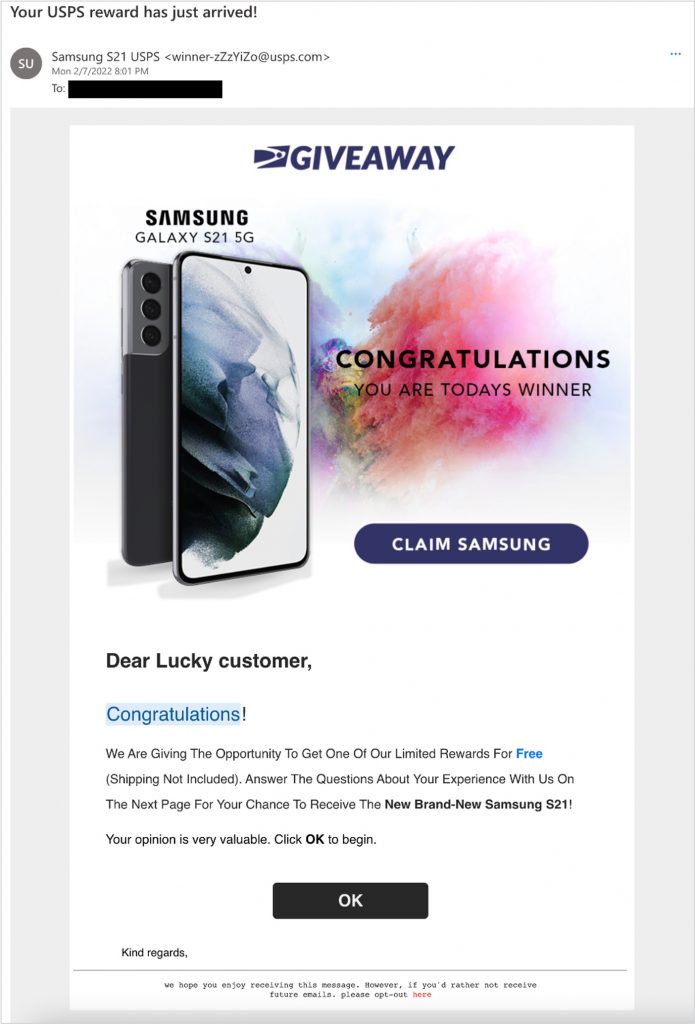
If you take the bait and click on the embedded button, of course, you’ll be taken to a phishing page. Don’t submit any information here!
The allure of a new Samsung S21 has been used in other scams to entice people into parting with their personal information, such as in the text message scam below:
- Hey Mike, the new Samsung S21+, for $3 Heres more details <URL> reply stop to opt out
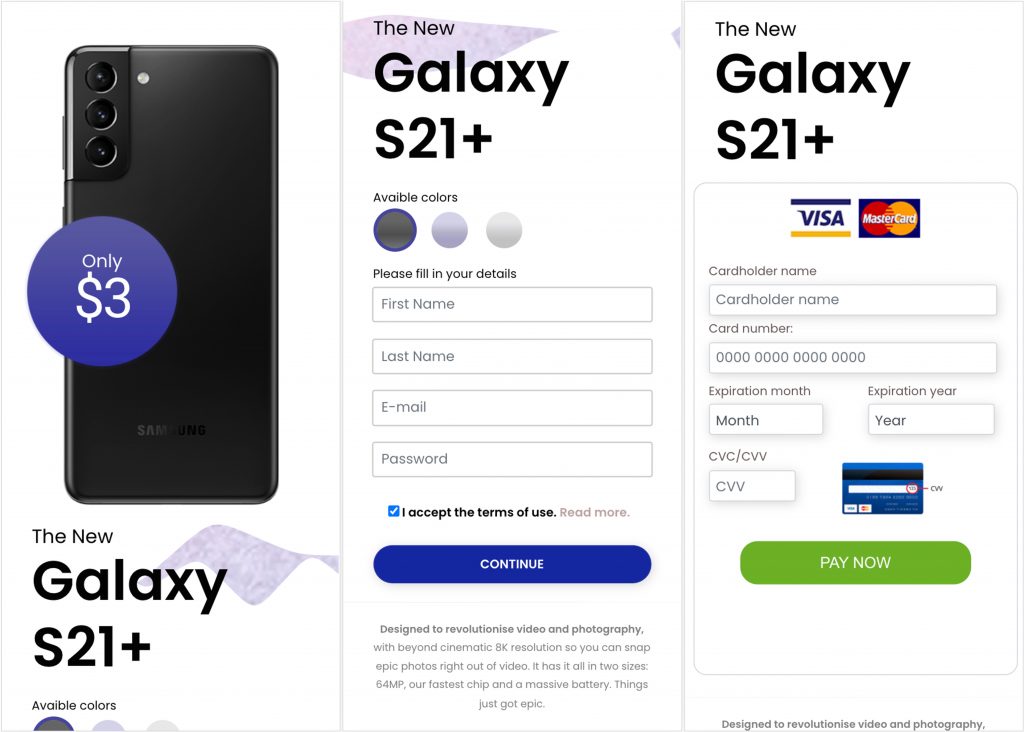
Again, the link will take you to a phishing page that asks for your credit card information. Don’t get scammed!
6. AT&T (AirPods Pro) Scam
Fake AT&T text messages are nothing new, and this week we spotted the February version of the fake “paid bills” text message scam:
- ATT Free Msg: February bill is paid. Thanks, Here’s a little gift for you: <URL> Enjoy
The attached link will take you to a fake AT&T online survey page that promises you a free pair of AirPods Pro.
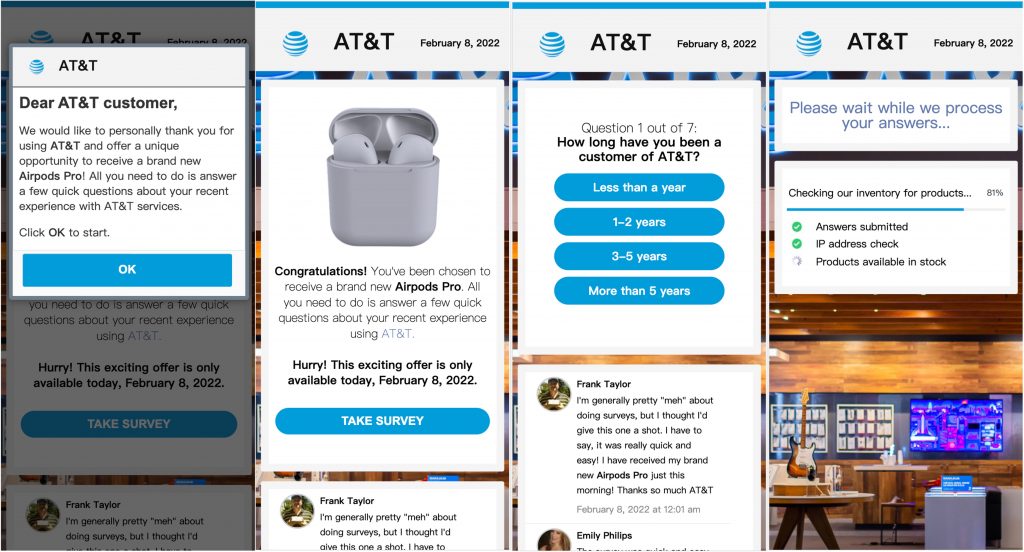
Then, you will be asked to enter credit card information. (Of course, don’t do so!)
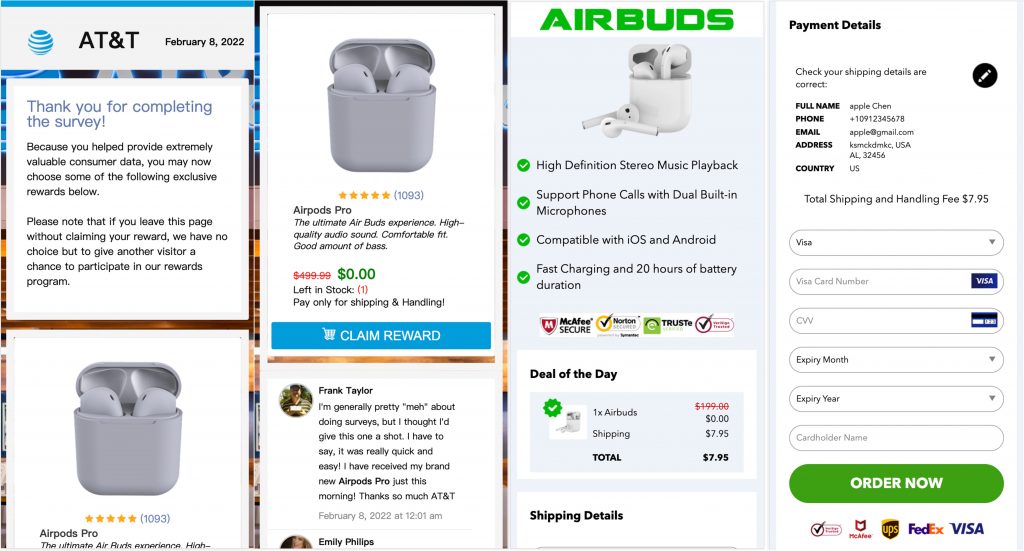
How to Protect Yourself
- Double-check the sender’s mobile number/email address.
- Free gifts or prizes are always a major red flag.
- Always go to the official website/application instead of using links from unknown sources.
- Use Trend Micro ScamCheck to surf the web safely (it’s free!)
- Add an extra layer of protection to your device with Trend Micro Maximum Security. Its Web Threat Protection, Ransomware Protection, Anti-phishing, and Anti-spam Protection can help you combat scams and cyberattacks. Click the button below to give it a try:
As ever, if you’ve found this article an interesting and/or helpful read, please do SHARE it with friends and family to help keep the online community secure and protected.
